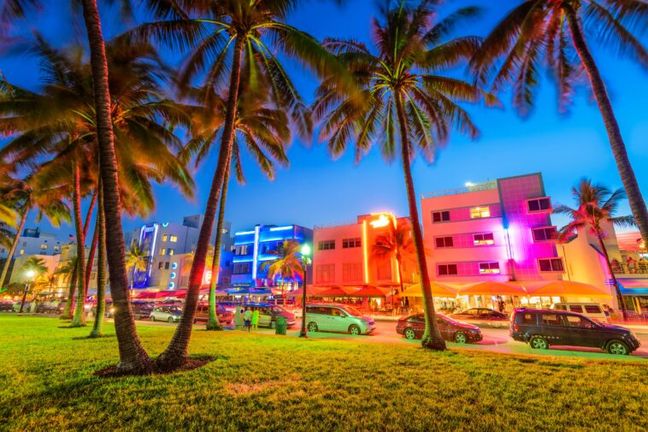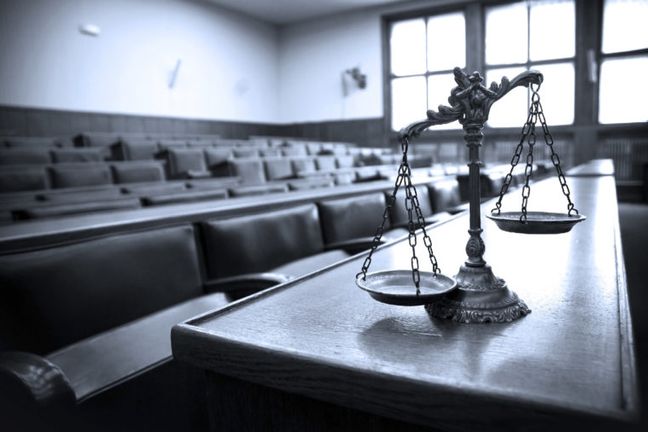Recently, a South Florida judge granted a trucking company’s motion for a new trial based on the exclusion of evidence regarding plaintiff’s intoxication [1] This ruling highlights the relevance of Florida’s intoxication defense in civil action tort claims.
The suit was brought by plaintiff against the owner of a tractor-trailer and the driver of the tractor-trailer, arising out of an early morning accident in which the driver of the tractor-trailer improperly turned into plaintiff’s lane, thereby colliding with plaintiff’s motor vehicle.[2] Defendants admitted the driver of the tractor-trailer was negligent, and his actions contributed to causing some of plaintiff’s damages, but also contended that plaintiff was negligent, resulting in or contributing to his own damages.[3]
The results of a blood alcohol test performed on plaintiff was 0.12, which is in excess of the legal limit of 0.08.[4] A pre-trial hearing resulted in the trial court excluding the evidence based on conflicts in the evidence regarding plaintiff’s intoxication and questions about the manner in which the blood alcohol test was performed.[5] Throughout the trial, defendants argued despite the tractor-trailer driver’s own negligence, plaintiff had the opportunity to avoid the accident, but failed to do so.[6] Pursuant to the court’s pre-trial ruling, defendants were unable to elicit any testimony or present any evidence that plaintiff’s failure to react in the moments before the accident was due to his intoxication.[7] The jury ultimately found defendant driver to be 70% negligent and plaintiff 30% negligent, resulting in the seven-figure award of over $3 million dollars to plaintiff.[8]
Florida is a pure comparative negligence state,[9] which means whatever percentage a plaintiff is negligent will be deducted from the final jury verdict. In most cases, even if a plaintiff is 99 percent at fault, they can still recover the one percent damages from a party whom bears such liability.
Fla. Stat. §768.36(2) (2017), or the Intoxication Statute, is an exception to this rule, and prevents recovery of any damages if the trier of fact finds plaintiff, at the time of the injury, was under the influence of any alcoholic beverage or drug to the extent plaintiff’s normal faculties were impaired or plaintiff had a blood or breath alcohol level of 0.08 percent or higher; and, as a result of the influence of such alcoholic beverage or drug, plaintiff was more than 50 percent at fault for his or her own harm.
Florida appellate courts have been loathe to uphold motions for summary adjudication granted in favor of plaintiffs regarding the issue of plaintiff’s intoxication and the effect that intoxication had on causing the injuries claimed,[10] finding the statute requires these issues to be considered by the jury.
Takeaway
The Intoxication Defense Statute is a strong tool in the arsenal of your defense attorney when the facts support its application. In fact, it has proven to have quite a broad application, and has been called upon in matters involving motor vehicle accidents[11], premises liability claims[12], police shooting actions[13], and even in a civil suit for damages following the rape/murder of an apartment complex tenant.[14]
[1] Order Granting Defendants’ Motion for New Trial, Marc Rene v. Pat Salmon & Sons of Florida, Inc. et al, No. 2015CA007601XXXXMB (Fla. 15th Cir. Ct. Nov. 16, 2017).
[2] Id.
[3] Id.
[4] Id.
[5] Id.
[6] Id.
[7] Id.
[8] Id.
[9] Fla. Stat. §768.81 (2017).
[10] See e.g. Shehada v. Tavss, 965 F. Supp. 2d. 1358, and Pearce v. Deschense, 932 So. 2d 640 supra.
[11] In Archbishop Coleman F. Carroll High School, Inc. v. Maynoldi, 30 So. 3d 533 (Fla. 3d DCA 2010), the Third District applied section 768.36(2) as a defense to an action brought on behalf of an intoxicated minor driver injured after he left a party at which alcohol was served. In the First District, Griffis v. Wheeler, 18 So. 3d 2 (Fla. 1st DCA 2009), Section 768.36(2) was applied as a defense to an action brought by an intoxicated pedestrian walking at night in the traffic lanes of U.S. Hwy. 27.
[12] In Pearce v. Deschesne, 932 So. 2d 640 (Fla. 4th DCA 2006), the Fourth District applied section 768.36(2) to an intoxicated tree trimmer who sued the property owner after he was injured trying to use a chain saw at the top of the owner’s tree
[13] In Shehada v. Tavss, 965 F. Supp. 2d. 1358 (S.D. Fla. 2013), the Court held the question of whether deceased was intoxicated and more than 50 percent at fault for death as a result of police shooting, was for the trier of fact.
[14] In Delancy v. Carlton Arms of Magnolia Valley LLP, 104 So. 3d 1143 (Fla. 2d DCA 2012), an apartment complex was sued by the estate of a rape/murder victim, for violating its own tenant screening rules and negligently allowing the convicted rapist/murderer, a wanted fugitive and unauthorized occupant, to live next door to and share a balcony with the victim for six months prior to the attack. The apartment complex successfully applied the intoxication defense statute to the victim and avoided liability.

 Author: Haldon Greenburg
Author: Haldon Greenburg
 Cannabis Workers Allege Quota to Trim 4 Pounds a Day Violates the California Labor Code
Cannabis Workers Allege Quota to Trim 4 Pounds a Day Violates the California Labor Code
 The Ninth Circuit Reminds Us: Every Word Matters
The Ninth Circuit Reminds Us: Every Word Matters
 NO WAY, PRO SE! The Consequences of Abusing the Judicial System as a Pro Se Litigant in Colorado
NO WAY, PRO SE! The Consequences of Abusing the Judicial System as a Pro Se Litigant in Colorado
 Victim of Financial Mismanagement or Unlawful Retaliation? New Jersey City University Program Founder Claims School Retaliated After Reporting Alleged Sexual Harassment
Victim of Financial Mismanagement or Unlawful Retaliation? New Jersey City University Program Founder Claims School Retaliated After Reporting Alleged Sexual Harassment
 “Real Housewives” Gets a Reality Check
“Real Housewives” Gets a Reality Check
 Missing a Chapter: Insufficiency of Expert Deposition Testimony in Medical Malpractice Litigation
Missing a Chapter: Insufficiency of Expert Deposition Testimony in Medical Malpractice Litigation
 Crash Course: Why Summary Judgment Misses the Mark in Illinois Multi-Cause Limousine Crash Collision
Crash Course: Why Summary Judgment Misses the Mark in Illinois Multi-Cause Limousine Crash Collision
 Bitter Truths: Lead, Cadmium, and Defective Pleadings in California Chocolate Class Action
Bitter Truths: Lead, Cadmium, and Defective Pleadings in California Chocolate Class Action
 The Law of Unintended Consequences: Including Insurance Brokers in Litigation Strategy Communication May Waive the Attorney-Client Privilege
The Law of Unintended Consequences: Including Insurance Brokers in Litigation Strategy Communication May Waive the Attorney-Client Privilege
 Florida: Judicial Hellhole No More?
Florida: Judicial Hellhole No More?
 Florida Supreme Court Confirms Collateral Source Rule For Defendants
Florida Supreme Court Confirms Collateral Source Rule For Defendants
 Florida Case Law Update
Florida Case Law Update
 Florida Case Law Update
Florida Case Law Update
 Meet the New Law. Same as the Old Law. Florida Reverts Back to the Daubert Standard for Expert Evidence
Meet the New Law. Same as the Old Law. Florida Reverts Back to the Daubert Standard for Expert Evidence
 Florida Case Law Update
Florida Case Law Update
 Florida Case Law Update
Florida Case Law Update
 Recent Florida Fourth DCA Opinions Highlight Importance of Specific Provisions in Agreements to Arbitration
Recent Florida Fourth DCA Opinions Highlight Importance of Specific Provisions in Agreements to Arbitration